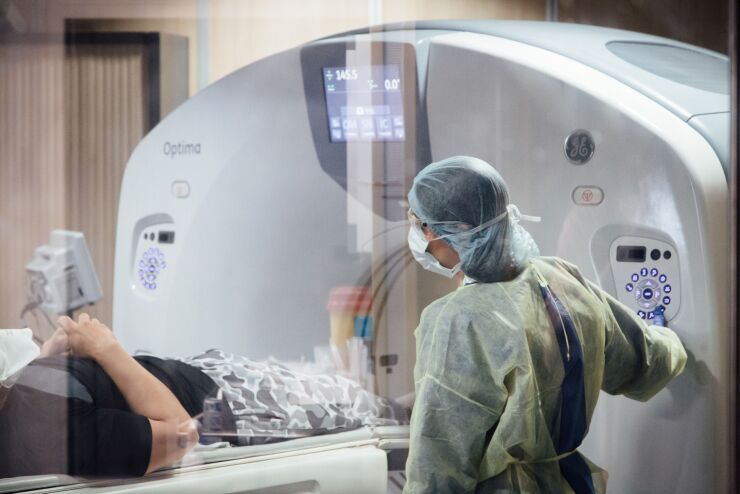Employees could be going under the knife when they don’t need to — and it’s costing employers big time.
Pacific Northwest insurance company, Premera Blue Cross, partnered with clinical analytics provider, Covera Health, to provide employers with leading radiology benefits to help prevent unnecessary surgeries, and other forms of wasteful healthcare spending. All Premera members will have access to Covera’s network of radiology providers through the fully insured and self-insured models that opt into the program.
“High-quality radiology is critical to putting our members on the right healthcare track across numerous medical specialties,” says Rick Abbott, vice president of product and market solutions for Premera. “We believe it’s more important than ever to help our members take the guesswork out of accessing quality providers for services that can impact their health for weeks, months or even years to come.”
In a recent white paper, Covera Health reported that complex medical conditions are misdiagnosed 30% of the time using MRIs and CT scans. One-third of healthcare spending ($750 billion) is wasted each year on unnecessary treatments, misdiagnosis and other inessential costs, according to the National Academy of Medicine. In the worst case scenario, misdiagnoses can lead to unnecessary surgeries, which can sometimes cause new health issues, or exasperate existing ones.
“There are some people who end up having back surgery because of an inappropriately read low back study means they're having a surgery that will inevitably cause more surgeries or more harm, at an incredibly high price point — all because there wasn't an appropriate diagnosis rendered up front,” Abbott says.
Back in 2019, Walmart discovered that more than half of their employees who were referred to their medical centers for spinal surgery were told they didn’t need surgery after all. The employees were previously misdiagnosed, and the company avoided having to pay for unnecessary, and potentially harmful, surgeries. Afterwards, Walmart switched to Covera Health to help prevent further misdiagnoses.
“The goal is to give associates the best chance to get better, and that starts with the right diagnosis,” said Lisa Woods, Walmart’s senior director of U.S. healthcare, in an interview with
Ron Vianu, CEO of Covera Health, says radiology also plays an important role in the opioid epidemic. More than 130 Americans die of opioid overdoses every day, according to the Centers for Disease Control and Prevention. The organization estimates the opioid epidemic costs the U.S. economy $78.5 billion a year with increased costs of healthcare, lost productivity, addiction treatment and criminal justice involvement. All these issues can be prevented if employees don’t undergo unnecessary surgeries.
“Opioids are largely provided to help patients after surgery,” Vianu says. “If you reduce unnecessary surgeries, or get patients the right ones, that’s going to have a significant impact on opioid use.”
Covera reported that radiology misdiagnoses are caused by a variety of issues, including using outdated imaging equipment and taking images improperly. Sometimes, the reading radiologist misses potential issues on the scan because they don’t specialize in identifying that particular condition. But not all providers are created equal; Covera uses AI and 10 years worth of provider data to identify the most effective radiology centers — dubbed the Covera Health Radiology Centers of Excellence. More than 1,000 radiology centers in all 50 states met the criteria to be added to this list.
“Radiology is a key discipline in helping us understand what’s going on inside the patient’s body, but many people don’t know how often [CT scans and MRIs] are misdiagnosed,” Vianu says. “If you’re trying to improve the lives of your employees, this is a fundamental first step in the journey.”






